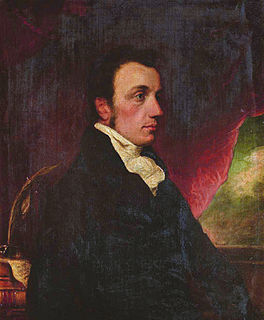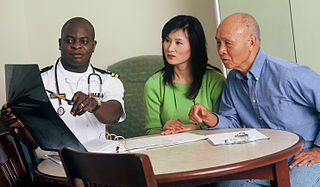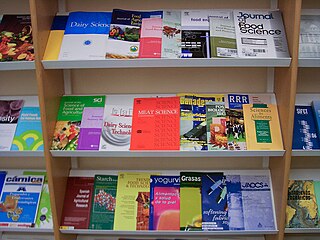Related Research Articles

A profession is an occupation founded upon specialized educational training, the purpose of which is to supply disinterested objective counsel and service to others, for a direct and definite compensation, wholly apart from expectation of other business gain. Medieval and early modern tradition recognized only three professions: divinity, medicine, and law, which were called the learned professions. A profession is not a trade and not an industry.

Edward Foss was an English lawyer and biographer. He became a solicitor, and on his retirement from practice in 1840, devoted himself to the study of legal antiquities. His Judges of England was regarded as a standard work, characterized by accuracy and extensive research. Biographia Juridica, a Biographical Dictionary of English Judges, appeared shortly after his death.

A professional is a member of a profession or any person who earns a living from a specified professional activity. The term also describes the standards of education and training that prepare members of the profession with the particular knowledge and skills necessary to perform their specific role within that profession. In addition, most professionals are subject to strict codes of conduct, enshrining rigorous ethical and moral obligations. Professional standards of practice and ethics for a particular field are typically agreed upon and maintained through widely recognized professional associations, such as the IEEE. Some definitions of "professional" limit this term to those professions that serve some important aspect of public interest and the general good of society.

An academic journal or scholarly journal is a periodical publication in which scholarship relating to a particular academic discipline is published. Academic journals serve as permanent and transparent forums for the presentation, scrutiny, and discussion of research. They are usually peer-reviewed or refereed. Content typically takes the form of articles presenting original research, review articles, or book reviews. The purpose of an academic journal, according to Henry Oldenburg, is to give researchers a venue to "impart their knowledge to one another, and contribute what they can to the Grand design of improving natural knowledge, and perfecting all Philosophical Arts, and Sciences."

The Royal Astronomical Society (RAS) is a learned society and charity that encourages and promotes the study of astronomy, solar-system science, geophysics and closely related branches of science. Its headquarters are in Burlington House, on Piccadilly in London. The society has over 4,000 members ("Fellows"), most of them professional researchers or postgraduate students. Around a quarter of Fellows live outside the UK.

The Gentleman's Magazine was a monthly magazine founded in London, England, by Edward Cave in January 1731. It ran uninterrupted for almost 200 years, until 1922. It was the first to use the term magazine for a periodical. Samuel Johnson's first regular employment as a writer was with The Gentleman's Magazine.

DeBow's Review was a widely circulated magazine of "agricultural, commercial, and industrial progress and resource" in the American South during the upper middle of the nineteenth century, from 1846 until 1884. Before the Civil War, the magazine "recommended the best practices for wringing profits from slaves". It bore the name of its first editor, James Dunwoody Brownson DeBow who wrote much in the early issues; however, there were various writers over the years. R. G. Barnwell and Edwin Q. Bell, of Charleston, appeared as editors in March 1867, after DeBow's death, and W. M. Burwell was editor from March 1868–Dec. 1879.
A journal, from the Old French journal, may refer to:

The Wisconsin Historical Society is simultaneously a state agency and a private membership organization whose purpose is to maintain, promote and spread knowledge relating to the history of North America, with an emphasis on the state of Wisconsin and the trans-Allegheny West. Founded in 1846 and chartered in 1853, it is the oldest historical society in the United States to receive continuous public funding. The society's headquarters are located in Madison, Wisconsin, on the campus of the University of Wisconsin–Madison.
The New Monthly Magazine was a British monthly magazine published from 1814 to 1884. It was founded by Henry Colburn and published by him through to 1845.

Periodical literature is a category of serial publications that appear in a new edition on a regular schedule. The most familiar example is the magazine, typically published weekly, monthly, or quarterly. Other examples of periodicals are newsletters, academic journals and yearbooks. Newspapers, often published daily or weekly, are, strictly speaking, a separate category of serial. Periodicals are most often referenced by volume and issue. Periodicals have a set period and can be classified as popular and scholarly. Indefinite periodicals have an indefinite production cycle and have no plans to stop publishing. Periodicals use the International Standard Serial Numbers a standardized reference number. Periodicals often have a preferred and lower rate for postal distribution.

The Justice of the Peace (JP) now known as Criminal Law & Justice Weekly (CL&J) is the oldest legal weekly magazine in England and Wales. It has continuously reported all aspects of the law for the magisterial and criminal courts, since first published in 1837. For the purpose of citation, the title of the Justice of the Peace newspaper may be abbreviated to JPN.

Electrician and Mechanic was an American science and technology magazine published from 1890 to January 1914 when it merged with Modern Electrics to become Modern Electrics & Mechanics. In July 1914, incorporated with Popular Electricity and the World's Advance and the title became Popular Electricity and Modern Mechanics. The new publisher, Modern Publishing, began a series of magazine mergers and title changes so numerous that librarians began to complain. In October 1915 the title became Popular Science Monthly and the magazine is still published under that name today.
The IEEE Society on Social Implications of Technology (SSIT) is a professional society of the Institute of Electrical and Electronics Engineers (IEEE). The society's Field of Interest is, according to its constitution;

The Agricultural Museum was the first agricultural periodical magazine published in the United States, first printed July 4, 1810.
United States copyright registrations, renewals, and other catalog entries since 1978 are published online at the U.S. Copyright Office website. Entries prior to 1978 are not published in the Online Catalog. Copyright registrations and renewals after 1890 were formerly published in semi-annual softcover catalogs called The Catalog of Copyright Entries or Copyright Catalog or published in microfiche.
Solicitors Journal is a monthly legal journal published in the United Kingdom by the International In-house Counsel Journal, Cambridge. It was established in 1856 and covers "practical and independent updates and analysis about the latest developments affecting the legal profession." The magazine has its headquarters in Cambridge.
A technical trainer is an educator or teacher who trains or coaches others in some field of technology. The task requires a certain set of competencies, but many technical trainers do not hold specific technical-training qualifications. Although there are professional organizations and publications of relevance to technical trainers, few of these are specifically focused on that profession.
Frederick Stroud, barrister and Recorder of Tewkesbury, son of John Stroud of Cheltenham, was born at Cheltenham on 17 October 1835. He was educated at Cheltenham. He was admitted a solicitor in 1863, taking honours at the examination. He was called to the Bar at Lincoln's Inn in Michaelmas 1883. In 1862, he wrote his County Court Practice in Bankruptcy. From 1862 to 1863, he wrote his Practical Law Affecting Bills of Sale. He is the author of the "Judicial Dictionary", the first edition of which was published in 1890, the second being published in three volumes, an exhaustive and eminently practical dictionary of the English of affairs by the English Judges and Parliament from the earliest times to the end of the nineteenth century. After Stroud's death, the Law Journal said that the dictionary would long preserve his memory. It was at Stroud's suggestion that the policy of municipalities for the government of London was adopted. Stroud was a member of the British Numismatic Society.
References
- 1 2 "Professional Magazines or Journals" in Professional/Trade Journals. Piedmont College, Library.
- ↑ Allan Lytel. "The Professional Journal" in Technical Writing as a Profession. Cincinnati, Ohio. 1959. Page 48. Google Books
- ↑ (1912) 7 The Journal of the Allied Societies 160 Google Books
- ↑ (1912) 7 The Journal of the Allied Societies 279
- Philip Ward Burton. Principles of Advertising. Prentice-Hall. 1955.
- Christine Nolen Taylor. Publishing the Professional Journal or Newsletter: An Editors Guide. American Dental Association. 1981. Google Books
- Klaus-Jürgen Evert (ed). "4609 Professional journal". Encyclopedic Dictionary of Landscape and Urban Planning. IFLA. Springer. Volume 1. Page 750
- "Reports of Societies" [1854] Association Medical Journal (New Series, volume 2) 201